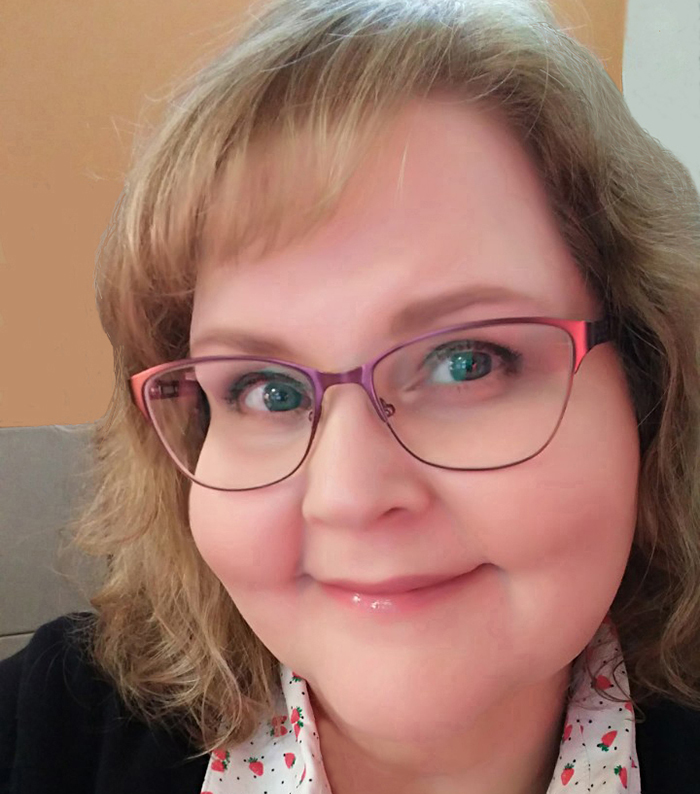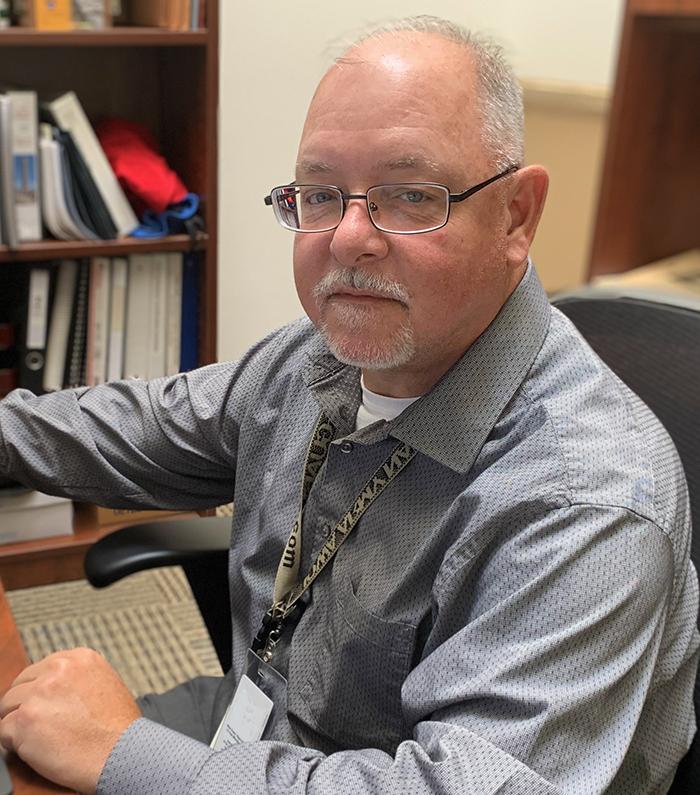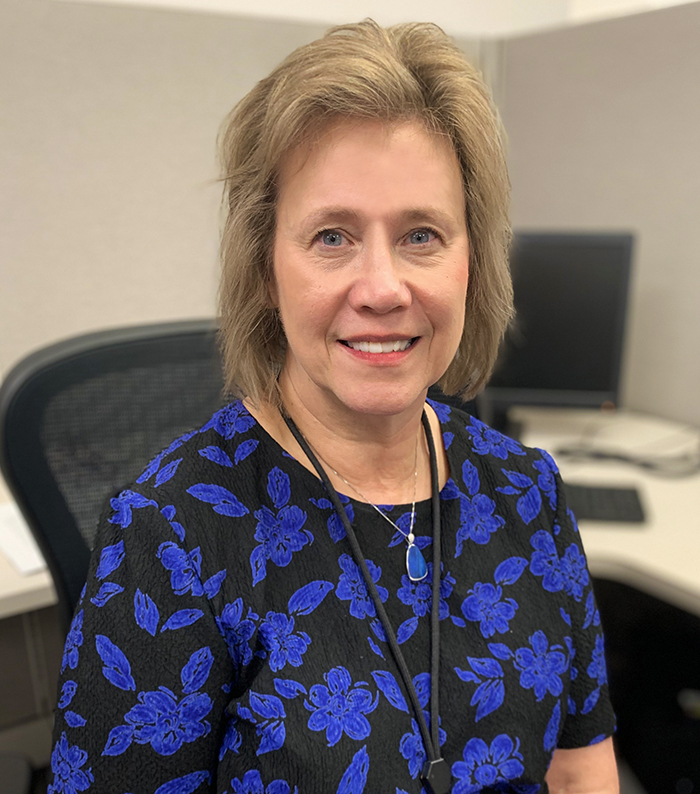Sept. 11, 2001 – 20 Years Later
HSEMD Remembers 9/11
It’s hard to believe that 20 years have passed since the terrorist attacks on September 11, 2001, an event that devastated our nation and changed the course of history forever. It is a time to remember and reflect on all the lives lost in just 102 minutes of the clock. The 9/11 terrorist attacks took nearly 3,000 lives and had a profound impact on millions of others.
Most remember exactly what they were doing on 9/11. On the 20th anniversary of the attacks, four members of the HSEMD staff, now and then, speak about how the tragic day shaped them, how it has affected them both personally and professionally, and reflect on the events 20 years later.
JOHN BENSON
“I would compare the level of concern I was hearing on the phone to a parent that had lost a child. The lack of verifiable situational awareness was breathtaking.“
LUCINDA PARKER
DENNIS HARPER
“I do remember clearly the “sick” feeling and initial anger I felt as it was learned that the events unfolding that day were an act of terrorism against the United States.”
KATHY STODOLA
Lost at World Trade Center site
Lost when American Airlines Flight 77 crashed into the Pentagon
Lost when United Airlines Flight 93 crashed near Shanksville, PA
Countries with citizens lost on 9/11
JOHN BENSON, DIRECTOR
I recall my experience beginning in the parking lot south of the Hoover Building where our office was located on the Capitol Complex in Des Moines. I had just pulled into the lot and the folks on the radio were discussing the fact that “some idiot” had flown their plane into one of the towers. “That’s not normal,” was my first thought. I proceeded into the office to find most people clustered into the director’s office watching TV. After the second plane flew into the south tower, and after a few seconds of “holy $xxx this is really happening” department staff started shifting gears into response mode. We knew this was going to be a mass casualty event. What could we do in Iowa to support New York City? What should our messaging be to the media and the public? How do we get the director home from Montana where she was attending a conference of state emergency management directors? Are there other planes that have been hijacked? The list of questions kept growing and initially answers were not readily available.
The entire day was something of a blur. There was much activity but not much that could be done in the SEOC to directly support New York City, Pennsylvania, and the Pentagon. Part of my focus that day was working with companies that were having challenges finding their employees who were in New York City. I would compare the level of concern I was hearing on the phone to a parent that had lost a child. The lack of verifiable situational awareness was breathtaking.
To this day I struggle to comprehend why the country had system failures like those that occurred with credit card processing. My car was out of gas and I wondered if I could even get home. Thankfully, I had $10 in my pocket and didn’t need to use a credit card to put gas in my car.
My day finished with trying to explain what was happening to my daughters. Amazingly hard when you, yourself, don’t clearly know what is happening.
“My day finished with trying to explain what was happening to my daughters. Amazingly hard when you, yourself, don’t clearly know what is happening.”

LUCINDA PARKER, RETIRED PUBLIC INFORMATION OFFICER
On Sept. 11, 2001, I had been with the department since January of that year and was still learning my job as a public information officer and what emergency management was about. But even if I’d worked in that job for 20 years it wouldn’t have prepared me for what happened that day.
As I was driving to a class that morning, the news was reporting that a small plane had hit one of the World Trade Center’s towers but it didn’t seem like a big deal. Before I reached my destination, I received a call from a coworker who told me to immediately report to work and I arrived in time to see the second plane hit the South Tower on the TV my colleagues were grouped around. We were bewildered, frightened, speechless, not knowing what would happen next or how it would impact Iowa and each of us individually. I don’t remember many of the details of that day, except that reporters started calling me, wanting to know if Iowa and Iowans were in danger, what the state was doing to protect its citizens, and what Iowans should be doing to protect themselves. It was my job to try to answer their questions but I didn’t have any answers. I wished I could have been reassuring but I couldn’t. We just didn’t know what was happening and what would come next. No one did. We quickly activated the state emergency operations center so we could approach the response to this the same as we did other emergencies and disasters, even though this wasn’t anything any of us were prepared for. I remember feeling safer in the SEOC in what is essentially an underground bunker. There was quiet talk about whether that facility could withstand an attack by airplane or other means. We called our families, told them we loved them, cried together, and did our jobs the best we could.
That day shaped my job because it changed the mission of the department as we took on Iowa’s homeland security responsibilities. As a public information officer, I had to expand my job focus to educate the public about terrorism and how to prepare for a terrorist attack and we quickly began our outreach to the public by building a website and educational materials. It wasn’t long after 9/11 that states began receiving federal funding to build their capacity to prepare for, and respond to, terrorism. With that money came intense media scrutiny of how that money was being used in Iowa, and dealing with reporters during that time became a very challenging part of my job. 9/11 changed me as a person because it made me feel vulnerable and unsafe. I had never really thought about terrorism much and certainly didn’t worry about terrorists attacking America. Suddenly, the sound of a plane overhead, a backpack on a bench in a mall, a large truck parked at a government building, made me feel fearful. In 2003, I had the opportunity to begin studying homeland defense and security at the Naval Postgraduate School in Monterey, CA, as part of a program developed by the U.S. Department of Homeland Security. It was an incredible privilege to learn from, and with, people who had experienced 9/11 and terrorism up close, and I was able to achieve my long-time goal of earning a master’s degree. I wish it had been under different circumstances, though.
Twenty years later I still feel the grief–my own and that of the people who lost their loved ones at the World Trade Center, Pentagon, and in Shanksville, PA. As Sept. 11 approaches each year, I feel the same kind of sadness that I do at the approach of the yearly anniversary of my mother’s death and the deaths of other loved ones. On 9/11 I know that America is remembering, too, and sharing my grief, and that comforts me.
“Twenty years later I still feel the grief–my own and that of the people who lost their loved ones at the World Trade Center, Pentagon, and in Shanksville, PA. As Sept. 11 approaches each year, I feel the same kind of sadness that I do at the approach of the yearly anniversary of my mother’s death and the deaths of other loved ones.”

DENNIS HARPER, RECOVERY DIVISION ADMINISTRATOR
I remember exactly what I was doing that day. I was driving to work toward my office at the Hoover Building in Des Moines as an employee of the Emergency Management Division and that particular day I was coming in late but I honestly cannot remember why. I was just outside of Des Moines on I-235 when there was a breaking news story on WHO Radio concerning what was being described as a small plane that had crashed into one of the World Trade Center towers in New York City. There was some follow-up discussion from the local live broadcast at the time about how strange it was that a small aircraft would fly into a building in New York City. One of the broadcast team from the station was a pilot and I could sense that there was some hesitancy to accept the accuracy of the story as it was being reported. However, as I continued to drive to work there was no clarification provided before I arrived at my office, and at that point I readied myself for another typical day at work. I believe within about 15 minutes of sitting down at the office, the day became a blur as follow-on reports started to hit the national news. I honestly cannot remember at what point I deployed to the state emergency operations center (SEOC) as part of the operations staff, but I do recall that the first shift lasted well into the evening and I do not remember leaving the SEOC operation that day.
I do remember clearly the “sick” feeling and initial anger I felt as it was learned that the events unfolding that day were an act of terrorism against the United States. I also remember feeling terribly unprepared for dealing with a terrorism-based response operation and the issues that came up throughout the first day and the days following. Prior to 9/11, terrorism as a human-caused hazard, within the context of the type of planinng and preparedness experience I had been involved with for the Emergency Management Division, was largely a secondary consideration. Since 9/11, terrorism has become an everyday consideration.
One specific and unique event I remember during the initial days of the 9/11 operation in Iowa was a conversation I had with a private crop duster pilot and local airport official at a small rural airport where I had to explain why it was absolutely imperative that the pilot not leave the ground, given the current rules of engagement expressed by the military to enforce no fly orders over the entire continental United States. Very intense!!
Professionally, 9/11 caused many changes in the types of jobs and assignments I would encounter. These jobs and assignments ranged from extensive planning efforts, to development of a fusion center intelligence-sharing concept for Iowa, to delivery of homeland security related programs and grants. For me, personally, I felt I had to make the decision that I could not continue my part-time military career and balance that with my full-time job with the Division and the stress that likely multiple military deployments would cause for my family. So I made a decision to retire from the National Guard much earlier than I had planned. With many personal friends in the military, the deployments were always on my mind.
Professionally, there has been a clear demarcation of my career prior to 9/11 and since. There have been so many interesting, rewarding, and sometimes frustrating challenges as the division became a department and as homeland security initiatives and programs have been implemented and then blended into the overall concepts for how a nation, states, and communities prepare for emergencies and disasters. Looking back, it’s daunting to think about how many resources have been dedicated to trying to ensure that an event like 9/11 never happens again and yet, the ongoing threat of terrorism remains real and our efforts related to natural hazards and resulting disasters has continued. If you had told me 20 years ago that terrorism and homeland security concerns would be as pronounced today as they were in the days and years following 9/11, I probably would not have believed it.
“For me, personally, I felt I had to make the decision that I could not continue my part-time military career and balance that with my full-time job with the Division and the stress that likely multiple military deployments would cause for my family.”

KATHY STODOLA, RETIRED OPERATIONS OFFICER
I was at the Emergency Management Division office, located in the Hoover Building. At our offices, there was a large television in the Division Administrators office, which was usually on with no sound tuned to a news channel. Breaking news came on, and like a magnet, all the staff were in the small office glued to the television. Shortly after the second plane hit the WTC, the decision was made to activate the State Emergency operations Center at the Joint Forces Headquarters.
Like most people, my first thoughts were disbelief. How could an intentional attack be happening in the US? Who could be responsible? The events of 911 changed the way I felt about how vulnerable we are to those that would like to do harm to the United States and how easy it seemed for these attacks to be carried out.
As a mom to three young boys, I was terrified of what the attacks would mean for their future. Could there be more attacks in the US, even in Iowa. I felt that they were safe at school, so I knew we at EMD had to get to work and be able to respond to the SEOC in whatever means that were necessary. We worked many long hours in the days and weeks that followed, supporting our state emergency response. One memory that I had, was at our local grocery, they set up televisions at each of the checkout lanes, so people could watch current events – this was before smartphones, so people were glued to the television. Local television stations were covering the 911 attacks 24/7.
Looking back 20 years, I have mixed emotions on the vulnerability of the US from outside attacks. I am very saddened that thousands of people lost their lives,and nothing can be done to bring them back.
“Looking back 20 years, I have mixed emotions on the vulnerability of the US from outside attacks. I am very saddened that thousands of people lost their lives,and nothing can be done to bring them back.“
